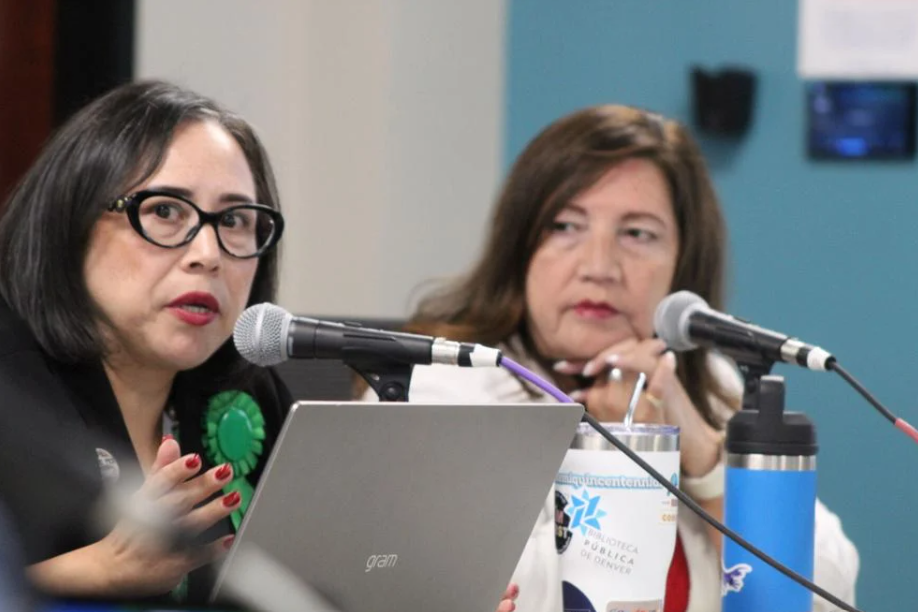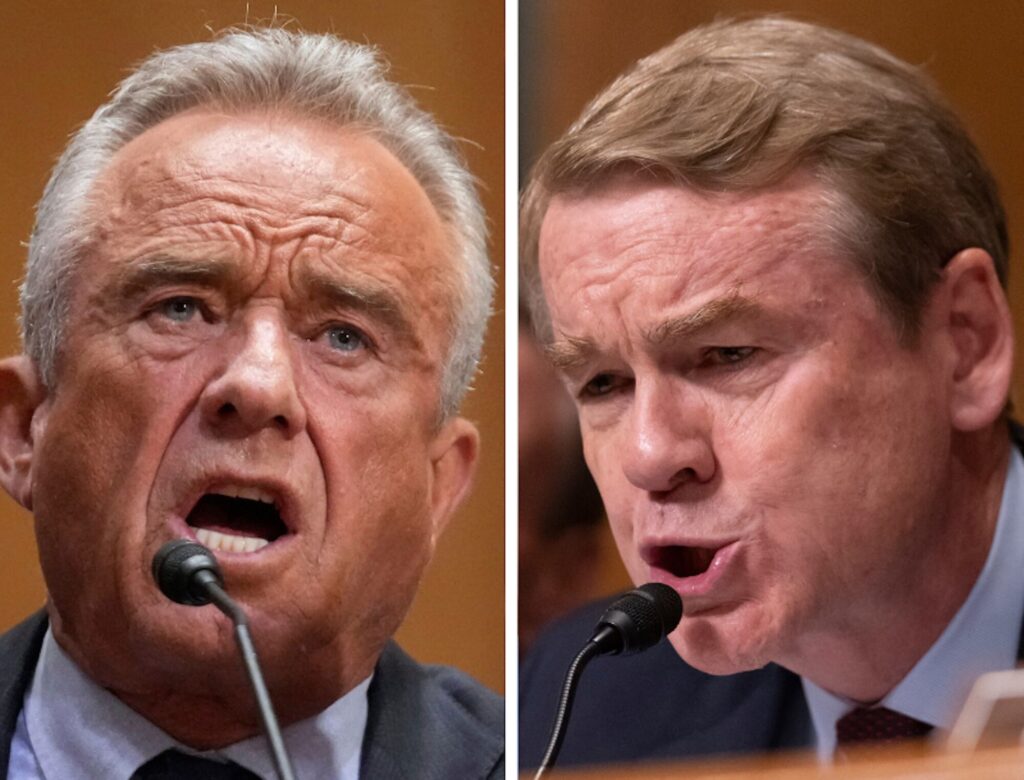YESTERYEAR: Owens takes steps to fix transportation budget shortfall, Amendment 41 derails three legislators
Fifteen Years Ago this week in the Colorado Statesman … The Colorado Children’s Chorale performance at the White House was proclaimed a riveting success. Thirty-two Colorado children performed at the private event, an experience the now-adults have surely not forgotten. “The Holiday Open House” event was for White House staff, members of Congress, the Secret Service and members of Washington D.C.’s local fire and police forces.
The chorale performed two 45-minute sets – one at the White House entrance and the other in the East Room – consisting of holiday and patriotic music.
According to Chorale Executive Director Diane Newcom, “Our style of performance, which is so different from the standard choir, with our choreography, awed the guests. They often stayed to listen to three or four songs even with the distraction of seeing all the lovely decorations in the other rooms of the White House. I am certain we spread a great deal of holiday cheer in that somber city.”
U.S. Rep. Diana DeGette, even with heightened security from the Sept. 11 attacks, was able to bring Children’s Chorale staff into the White House to see the performance, where they wouldn’t have been able to attend otherwise. U.S. Rep. Tom Lantos, a California Democrat, and his wife Annette Lantos, who’s granddaughter was in the chorale, conducted a special tour of the Capitol.
The Colorado Children’s Chorale had already performed for a number of dignitaries, including Pope John Paul II, the dalai lama, the emperor and empress of Japan, President Gerald R. Ford and first lady Betty Ford, Jaqueline Kennedy Onassis, and President Bill Clinton.
… Listed at the top of Gov. Bill Owens’s wish list – transportation. In remarks made at a legislative briefing with members of the Colorado Press Association, Owens made it clear that the funding of Colorado’s transportation projects was second only to education as a major concern of Coloradans.
“We have about a $30 billion shortfall over the next 20 years for transportation,” said Owens. Although the state component is about $14 billion, Owens said he wanted transportation to have a “seat at the table” when the state Legislature dealt with capital spending.
Owens favored increasing the percentage from 10 to 15 of the sales-tax revenue allocation for transportation under Senate Bill 1, and making the bill stronger by removing triggers which constitutionally must be funded before transportation.
Owens made the case that the Senate Democratic majority, led by Senate President Stanley Matsunaka, advocated the wrong approach for raising additional funds. Matsunaka, argued that state transportation needed $32 billion in funding for the next 20 years, he also advocated that the Legislature explore different options, including a hike in the gas tax.
“We are on the precipice of a huge disaster in this state,” said Matsunaka at a similar briefing for the Statehouse press corps.
According to Owens, one of the primary responsibilities facing legislators during the session was the ability to operate within a budget where the General Fund reserve was at its lowest since the 1991-1992 legislative session.
“I took some steps and the Legislature took some steps in the special session to try to start to slow down the growth of the budget. Because we did, we’re in a little better shape that we would have been had we waited until December.”
The slow economy caused Owens to tighten the budget during a special session of the Legislature that year. Senate Bill 01S2-23 cut $390 million in capital and highway spending. “My expectation is that we’re not going to see any new budget items other than the constitutional requirements of Amendment 23 and attempts to make Medicaid more manageable.”
… Ten Years Ago … Amendment 41 derailed three legislators not long after its passage. Due to the so-called “Ethics in Government” amendment, which was approved in 2006 by voters, three Colorado lawmakers resigned.
The amendment required a two-year cooling off period before (they and other statewide officials) could work with former colleagues, typically in lobbying.
Though legislators typically waited to leave office until the day their successors are sworn in, Reps. Joe Stengel (R-Littleton) and Sen. Ron Teck (R-Grand Junction) resigned early, ahead of their term limits to head off the law going into effect, due to their eventual job prospects in lobbying being in danger.
In addition, Denver Democratic Sen. Dan Grossman had chosen not to seek re-election in November because he didn’t want to jeopardize his current position as regional director with Environmental Defense, though it was unclear at the time, “due to wording of Amendment 41,” whether Grossman would have fallen under its mandate.
… Finegan makes it a tough act to follow. On a Friday evening, one might have expected the crowd at Coors Field to be Mayor John Hickenlooper’s campaign kick off party. “No one has helped my re-election campaign as much as Cole Finegan,” Hickenlooper said as he began his remarks at the farewell party for his chief of staff and Denver’s city attorney.
Finegan had just completed his last day with the city, and much of the city’s political elite was on hand to wish him well.
“It’s important to get the right players and lineup from top to bottom and try to find players who can play more than one position,” Hickenlooper said. “Cole has been the MVP of the team.”
In his three years as city attorney, Finegan reorganized the City Attorney’s Office, saving millions of dollars in court fees. He reinvented what Hickenlooper referred to as “The Firm,” a tern for Denver city government in general.
Finegan’s successes included police reform, agreement on an independent auditor, approval of a new Xcel Energy franchise, the setup of a new financial structure for Denver with a chief financial officer and the conclusion of the so-called “spy files cases.”
Hickenlooper joked that failed campaign managers from past mayoral campaigns had become increasingly talented as chiefs of staff in his office, which referred to Finegan’s management of Norm Early’s unsuccessful campaign for major in 1991, and Kelly Brough, his new chief of staff who managed opponent Sue Casey’scampaign against him almost four years prior.
“I probably did more to help Wellington Webb get elected,” Finegan acknowledged jokingly to the crowd, which included the former Denver mayor along with former Gov. Roy Romer, whom Finegan had worked for in the past.
“There are a lot of great mayors in this city – who have built airports, hotels, convention centers -but Hickenlooper has built a culture,” Finegan said about his boss. “This is the greatest city with the greatest mayor – the best-run city,” he added.












